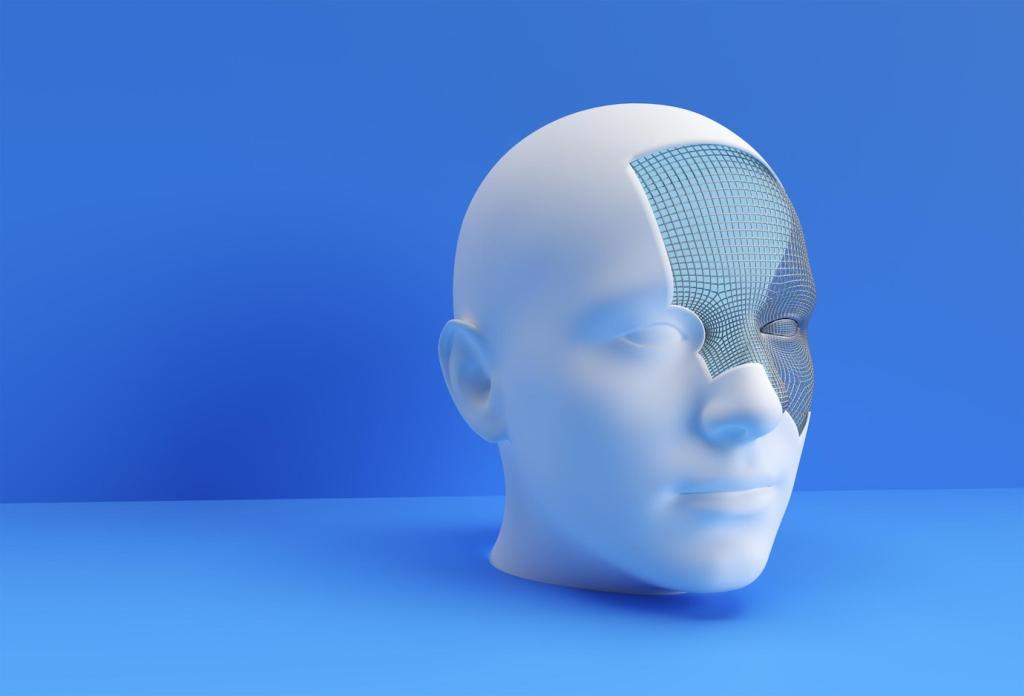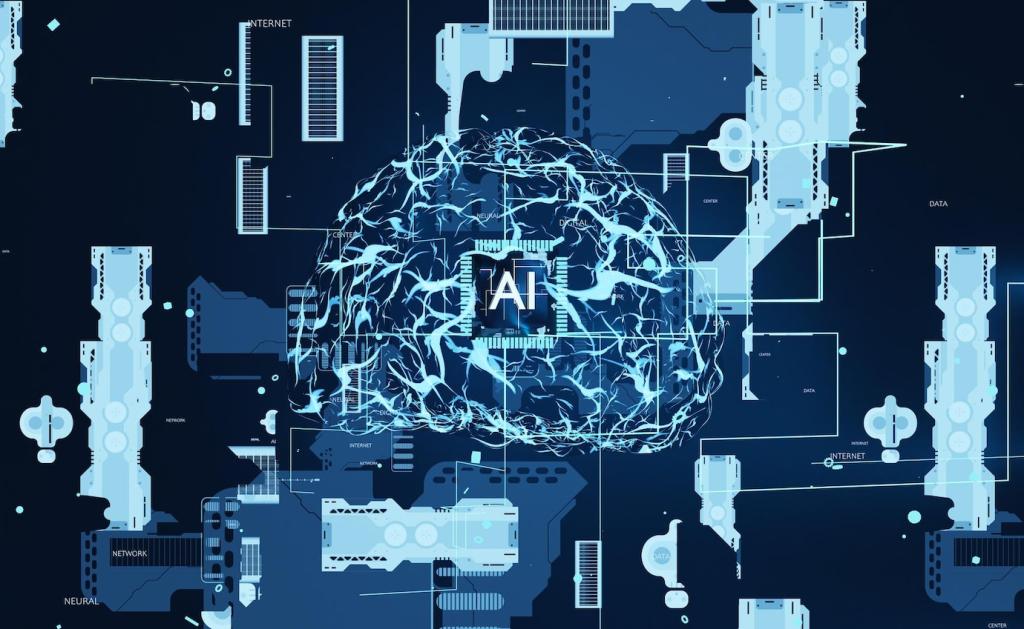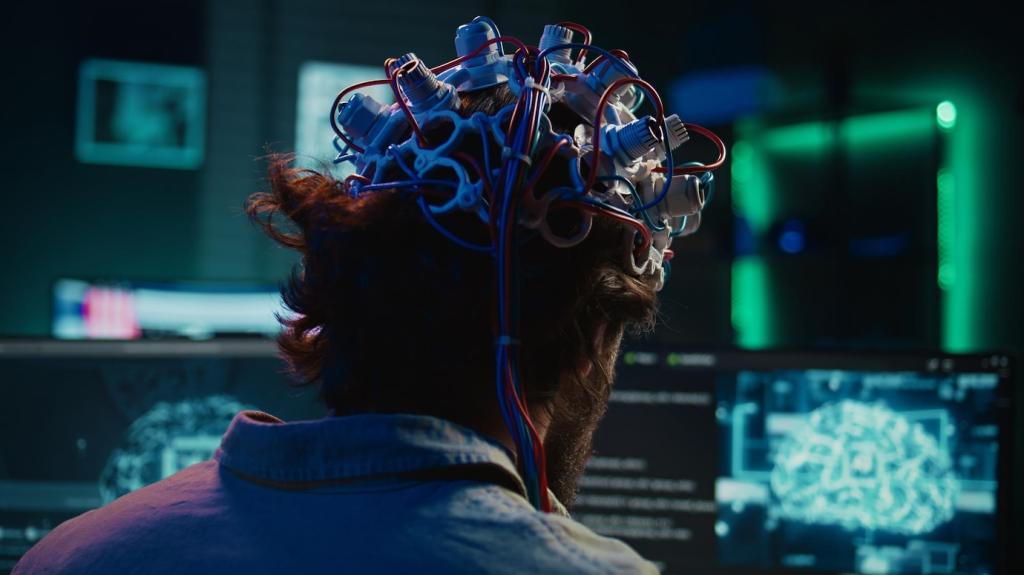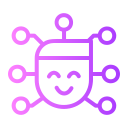Artificial Intelligence in Healthcare: Revolutionizing Patient Care
Artificial Intelligence (AI) is transforming healthcare in profound ways, enabling more precise, efficient, and personalized patient care. By leveraging vast amounts of data, AI technologies are augmenting the capabilities of medical professionals, enhancing diagnostic accuracy, streamlining administrative tasks, and improving treatment outcomes. As AI continues to evolve, its role in healthcare is expanding, touching every aspect from early diagnosis to patient engagement. This revolution promises not only to advance clinical practices, but also to make healthcare more accessible, efficient, and patient-centric than ever before.


Medical Imaging Analysis
Medical imaging is fundamental to the diagnosis of many conditions, including cancer, heart disease, and neurological disorders. AI-powered tools analyze images such as X-rays, MRIs, and CT scans with remarkable precision, often detecting patterns and anomalies that may escape the human eye. These systems not only assist radiologists in interpreting complex images but also flag urgent cases, prioritize workflows, and reduce diagnostic errors. As a result, AI enhances early detection rates and supports faster, more effective interventions for patients.

Pathology and Lab Test Interpretation
AI’s capabilities extend beyond imaging into pathology and laboratory testing, where it enables more nuanced analysis of slides and test results. By comparing data to vast repositories of known cases, AI algorithms can help pathologists identify subtle changes in tissue samples or blood markers, which are critical for early and accurate disease identification. This not only speeds up diagnostic timelines but also ensures a higher degree of consistency and objectivity, reducing the risk of human oversight in interpreting complex data.
Personalized Treatment Planning
Genomic data contains valuable information about how individuals will respond to treatments. AI excels at interpreting genetic sequences and connecting them to disease mechanisms, drug responses, and hereditary risks. With this knowledge, clinicians can tailor medication types and dosages, predict adverse reactions, and select therapies that will be most effective for a patient’s unique genetic profile. This approach is revolutionizing cancer care and other specialties by enabling highly targeted treatments that offer improved efficacy and reduced harm.

Automated Medical Coding and Billing
AI-powered solutions can interpret clinical notes and assign accurate medical codes for billing and insurance purposes. These systems learn from thousands of cases and can quickly process large volumes of documentation. By reducing manual entry and minimizing errors, AI ensures timely reimbursements and decreases the likelihood of claims denials. The automation of these administrative tasks enhances productivity and allows staff to concentrate on direct patient interactions.
Scheduling and Resource Optimization
Effective scheduling is critical for maximizing the use of healthcare resources. AI algorithms analyze appointment patterns, provider availability, and historical no-show rates to optimize scheduling for both patients and staff. The result is reduced wait times, fewer appointment gaps, and better allocation of rooms, equipment, and personnel. This not only streamlines operations but also improves patient satisfaction by ensuring timely access to care.
Digital Documentation and Virtual Assistance
Healthcare providers traditionally spend a significant portion of their day on electronic health record documentation. AI-driven virtual assistants can transcribe, summarize, and enter clinical data, reducing the burden on clinicians. These tools use natural language processing to capture information accurately during consultations. By automating documentation, AI improves data consistency, facilitates compliance, and allows healthcare professionals to devote more attention to patient care.
Improving Patient Engagement and Experience
AI-powered chatbots are now offering round-the-clock assistance for patients, answering health-related questions, managing appointments, and providing education on various conditions. Beyond administrative support, some advanced virtual coaches monitor lifestyle choices, remind patients about medication, and encourage healthy habits. This virtual guidance extends the reach of healthcare professionals and offers patients trustworthy, immediate support, especially after hours or between visits.

Advancements in Medical Research

Traditional drug discovery processes are lengthy and costly. AI-powered platforms can analyze enormous datasets to predict how different compounds will interact with biological targets. This accelerates the identification of promising drug candidates, reduces the need for extensive laboratory screening, and shortens timelines to clinical trials. By modeling molecular interactions with unprecedented accuracy, AI significantly boosts innovation in pharmaceutical development.
AI platforms analyze streams of health data from multiple sources, including hospital admissions, lab reports, and social media, to identify disease outbreaks in real-time. These systems detect early warning signs and predict the spread of infectious diseases, allowing authorities to implement containment strategies quickly. Rapid surveillance not only saves lives but also minimizes the social and economic impact of health crises.
Supporting Population Health and Public Health Initiatives
Ensuring Data Security and Ethical Considerations
Healthcare organizations must balance the benefits of AI with strict privacy regulations. AI systems are designed to handle sensitive medical information, and robust encryption and access controls are essential to prevent unauthorized access or data breaches. Healthcare providers must comply with laws such as HIPAA while ensuring that the innovations do not compromise patient confidentiality, maintaining trust as technology advances.

